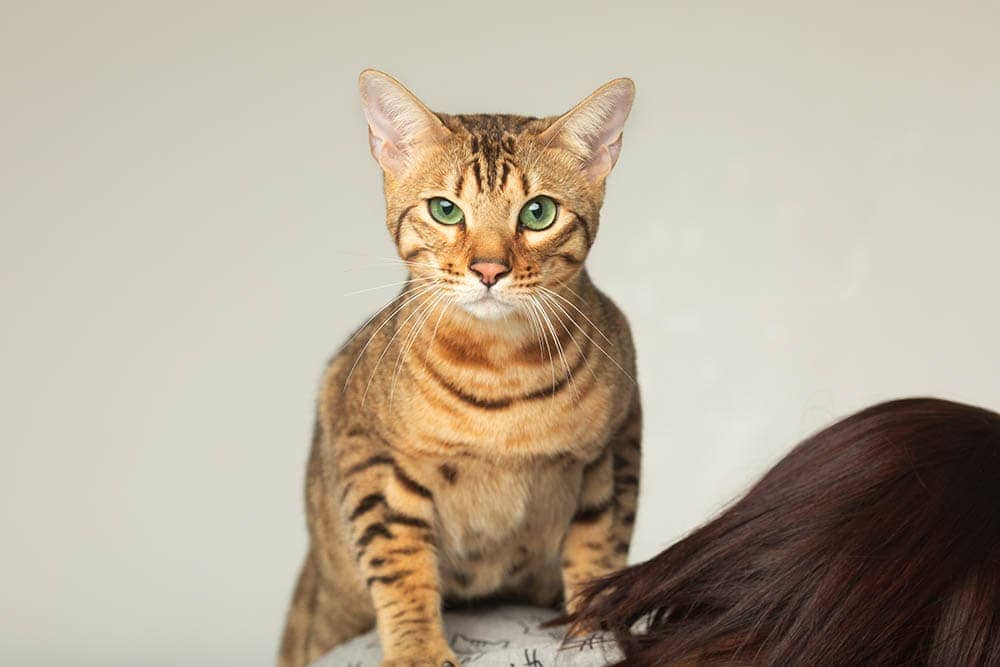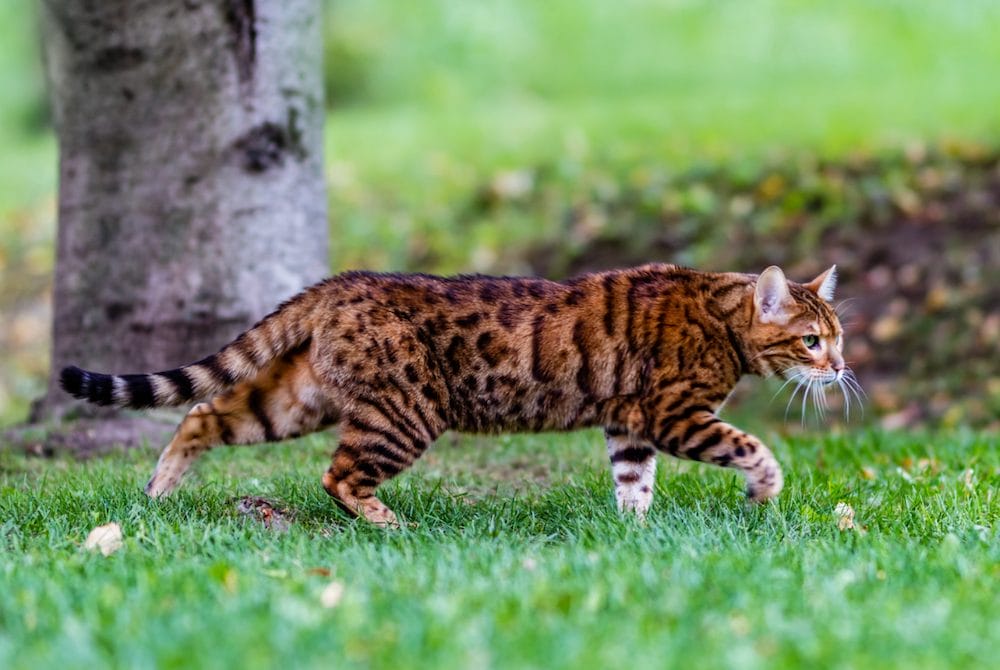The Serengeti is a newer hybrid cat breed developed to resemble wild cats roaming the African savannah. Known for their spotted coats and energetic personalities, these cats make devoted companions.
Introduction The Spotted Serengeti Cat Breed
First developed in the 1990s by an American breeder, the Serengeti cat combines traits of the Bengal and Oriental Shorthair. They are bred to have a strong resemblance to wildcats living in Africa grasslands, with solid ears, round heads, and characteristic spotted markings. While bred from hybrid origins, produce true-breeding kittens today. These high-energy cats form deep bonds with their families.

Affectionate with Family: ⭐⭐⭐⭐
Amount of Shedding: ⭐⭐
General Health: ⭐⭐⭐
Potential for Playfulness: ⭐⭐⭐⭐
Tendency to Vocalize: ⭐⭐⭐
Kid-Friendly: ⭐⭐⭐
Friendly Toward Strangers: ⭐⭐⭐
Easy to Groom: ⭐⭐
Intelligence: ⭐⭐⭐
Pet Friendly: ⭐⭐⭐
- Medium-sized muscular build
- Short dense coat with spotted markings
- Distinctive solid colored ears
- Active, social and highly energetic
- Lifespan of 10-12 years on average
- Black, brown or gold spotted coat colors
Serengetis have recent Bengal and Siamese hybrid ancestry in foundation breed lines from the 1990s but breed true today.
Caring for a Serengeti cat breed
Diet:
- High-protein, meat-focused cat foods
- Wet food for increased hydration
- Treats that support dental health
Environment:
- Cat towers and shelves for climbing
- Puzzle feeders and interactive toys
- Birdfeeder view
Grooming:
- Weekly brushing
- Nail trims every 2-3 weeks
- Check ears and teeth routinely
- Enrichment: Engage their energetic nature via active playtime and environmental exploration opportunities.

Finding a Serengeti
- Popular in: North America, Europe
- Price Range: $800 – $1200
Adoption/Rescue:
- The International Cat Association (TICA)
- Rare breed cat rescues
- Pre-Adoption Checks:
- Overall health and energy levels
- Vaccination records
- Past medical history
Preparing for a Serengeti
- Tips: Cat-proof home, have tall cat trees/shelves, use interactive feeding puzzles and toys
- Care Tasks: Nutritious diet, active playtime every day, annual vet exams
- Essentials: Premium food, treats, vertical scratching posts, wand toys
- Health Issues: Heart disease, hip dysplasia, patellar luxation
- Key Vaccines: Feline panleukopenia, rhinotracheitis, calicivirus, rabies, feline leukemia

Popular Serengeti Cat Names
Names related to their wild looks or African heritage suit them nicely.
Examples: Pumba, Sahara, Mateo, Amari, Zuri
“Do Serengetis like the outdoors?”
While curious, they do well as indoor-only cats given adequate vertical territory and daily activity.
“Are Serengetis intelligent?”
Yes, pick up tricks and solve puzzles readily when motivated by praise and rewards.
“How many Serengeti types?”
Just one officially recognized breed with minor spotting pattern and color variations.
“How to stop Serengeti biting?”
Redirect biting onto appropriate scratching posts and toys, say no firmly, ignore after, and reward gentle play.
“How to curb Serengeti scratching?”
Trim nails regularly, provide scratch posts around the home, use calming synthetic pheromone plugins.
“Tips for friendly Serengeti socialization?”
Gradually positively introduce sights, sounds, people and animals during key 7-16 week period.
“How to train a Serengeti cat?”
Use praise, play and treats to motivate learning commands like sit, stay, spin, come, fetch.
“Recommended Serengeti vet visits?”
Annual exams plus immediate vet visits for any emerging health or behavior concerns.
“Good family pets?”
Yes, energetic form very close, affectionate bonds with all family members.
“Good with kids/other pets?”
Yes, their friendly nature allows safe interactions with children and pets when properly introduced.
“Can they cause allergies?”
While not hypoallergenic, their short coat produces less dander than long-haired breeds.
“Are they aggressive?”
No, have friendly temperaments when positively raised and socialized.
“Do they have hair loss issues?”
No. Their short, sleek coat requires little maintenance and sheds moderately.
Are you a cat lover who wants to learn more about your furry friends? Do you want to find the best cat food, cat care tips, and resources for your cats? If so, you’ve come to the right place! Welcome to Cat Food Site, the ultimate website for cat enthusiast.
Here you will find everything you need to know about cats Breed, from their health and behavior to their breeds, cat diet and names. You will also discover the latest cat news, cat nutrition, trends, and memes from around the web.

